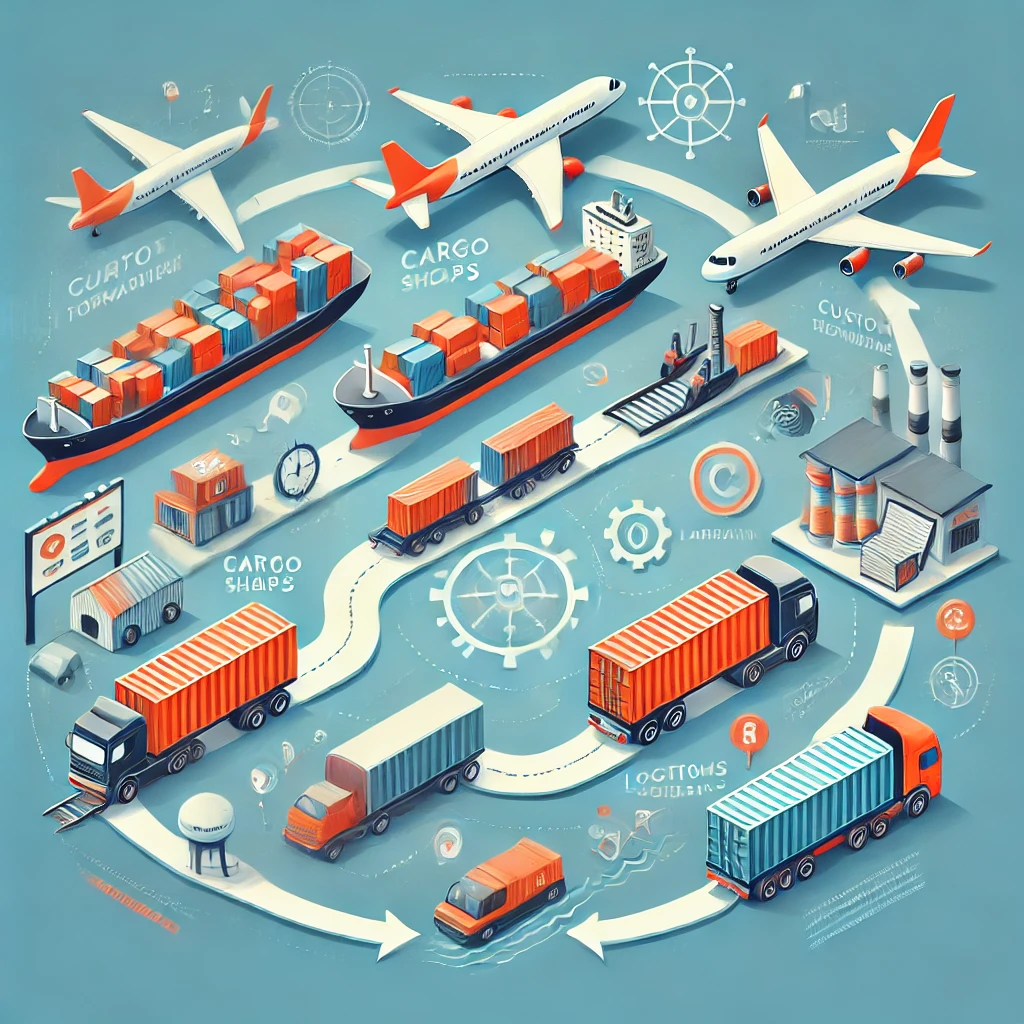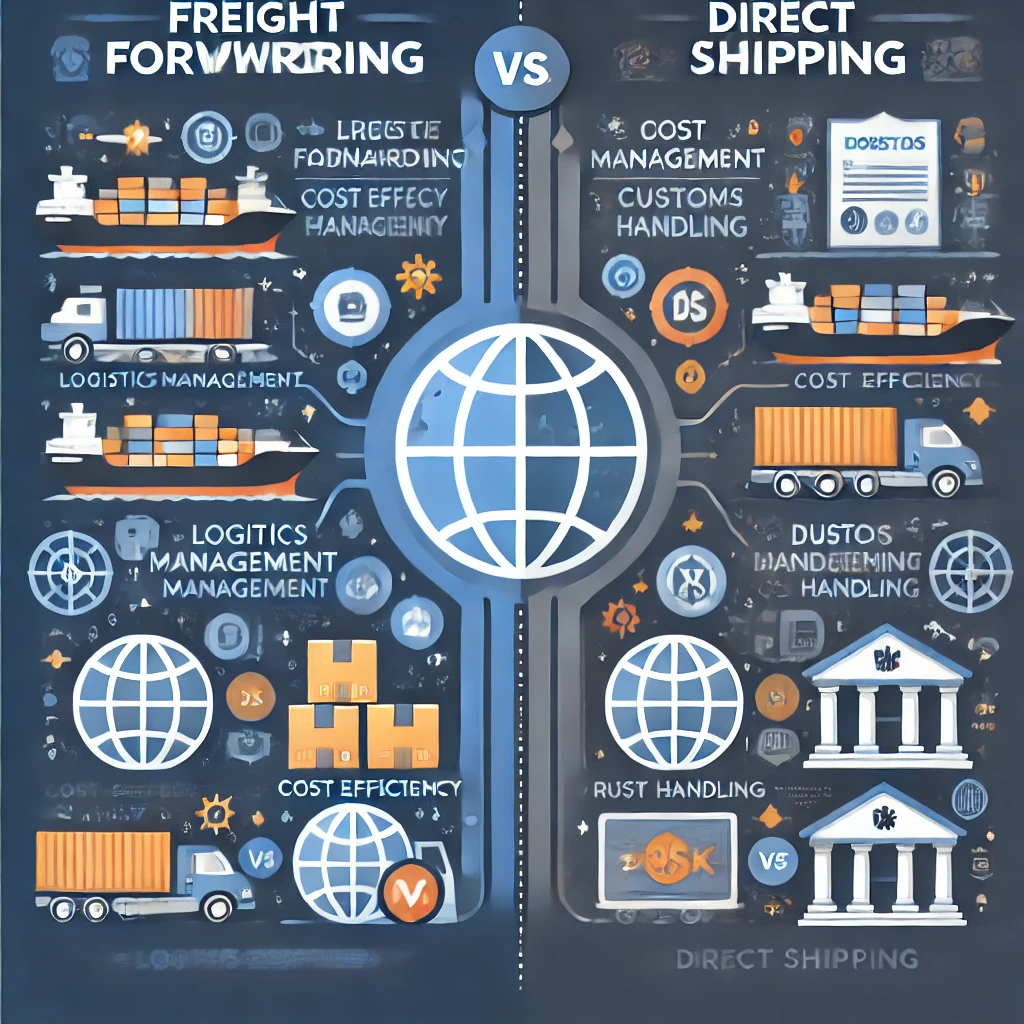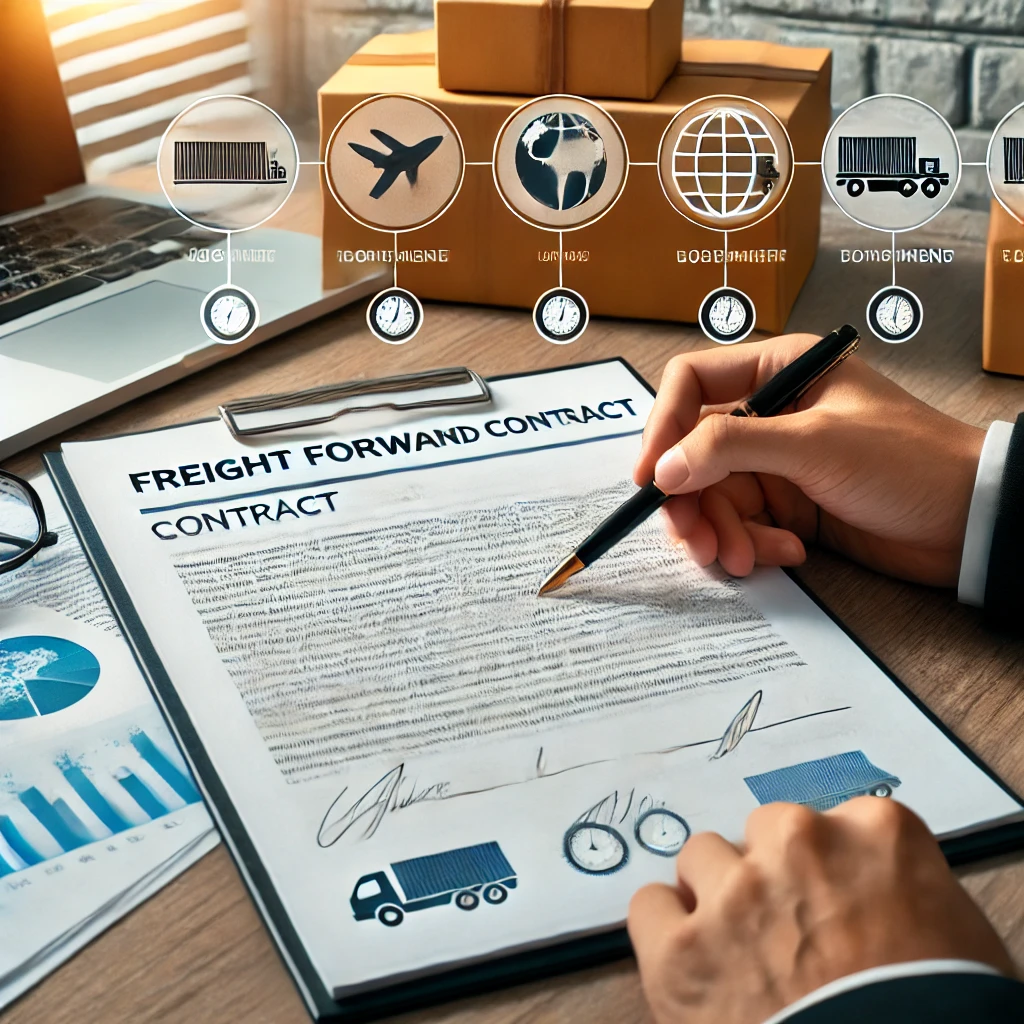An In-Depth Guide to What Is Freight Forwarding

What Is Freight Forwarding?
Freight forwarding is a logistics service that helps businesses coordinate the storage, transportation, and delivery of goods across domestic and international supply chains. Freight forwarders act as intermediaries between shippers and carriers, ensuring that goods reach their destination efficiently and cost-effectively.
Key Responsibilities of a Freight Forwarder
Responsibility | Description |
Logistics Coordination | Manages transportation from origin to destination. |
Customs Clearance | Prepares and processes import/export documents. |
Cargo Consolidation | Combines multiple shipments to optimize costs. |
Freight Rate Negotiation | Secures the best shipping rates for clients. |
Tracking & Insurance | Provides real-time shipment tracking and insurance coverage. |

Key Features of Freight Forwarding
1. Multi-Modal Transportation Management
- Freight forwarders handle air, sea, road, and rail transportation.
- Allows businesses to choose the best shipping method based on cost and urgency.
2. Customs & Regulatory Compliance
- Handles all necessary documentation, duties, and import/export regulations.
- Ensures that shipments comply with international trade laws.
3. Cargo Tracking & Real-Time Visibility
- Offers end-to-end shipment tracking to monitor cargo movement.
- Improves supply chain efficiency and transparency.
4. Freight Insurance & Risk Management
- Protects goods against damage, loss, or theft during transit.
- Helps businesses reduce financial risk and improve security.
5. Supply Chain Optimization
- Helps companies reduce shipping costs, transit times, and delays.
- Enables businesses to focus on core operations instead of logistics.
Practical Uses of Freight Forwarding
1. International Trade & Import/Export Operations
- Businesses use freight forwarders to streamline global shipping.
2. E-Commerce & Retail Supply Chains
- Facilitates fast and reliable shipping for online businesses.
3. Industrial & Manufacturing Logistics
- Helps companies transport heavy machinery, raw materials, and bulk goods.
4. Third-Party Logistics (3PL) Support
- Freight forwarders work with 3PL providers to improve warehousing and distribution.

Advantages and Challenges of Freight Forwarding
Advantages | Challenges |
Simplifies international shipping with expert logistics management. | Customs delays and trade restrictions can impact delivery. |
Provides access to better freight rates through carrier partnerships. | High costs for premium freight forwarding services. |
Improves supply chain efficiency by reducing delays. | Risk of damage or loss if shipments are not insured. |
Ensures compliance with trade laws to avoid penalties. | Relies on multiple carriers, increasing complexity. |
Freight Forwarding vs. Direct Shipping
Aspect | Freight Forwarding | Direct Shipping |
Logistics Management | Managed by a third-party expert. | Handled directly by the business. |
Customs Clearance | Managed by freight forwarder. | Requires in-house expertise. |
Cost Efficiency | Optimized through consolidation. | Can be higher for small shipments. |
Risk Management | Covered through insurance and compliance. | Higher risk without proper documentation. |

When to Use a Freight Forwarder?
- Best for businesses managing large or international shipments.
- Ideal for companies that need customs clearance support.
- Recommended for optimizing shipping costs and reducing supply chain complexity.
- Not necessary for small, local shipments or direct-to-consumer deliveries.
Conclusion
A freight forwarding service is an essential part of global trade, ensuring that shipments move efficiently, cost-effectively, and in compliance with international regulations.
By leveraging expert logistics coordination, customs clearance, cargo tracking, and risk management, businesses can streamline their supply chains and reduce shipping challenges.
Whether you’re an importer, exporter, e-commerce business, or logistics manager, working with a freight forwarder can help enhance shipping efficiency and optimize freight operations.
